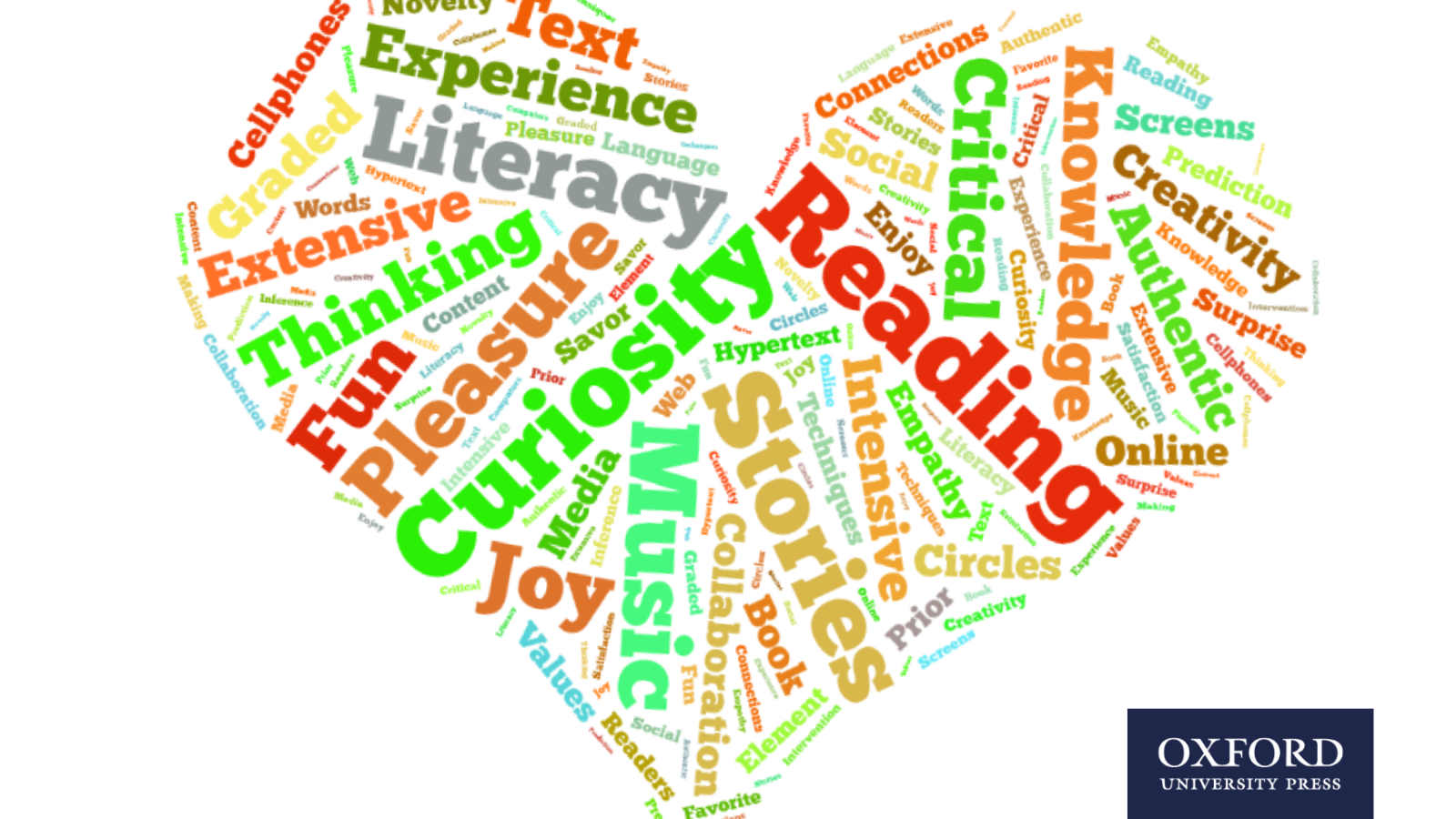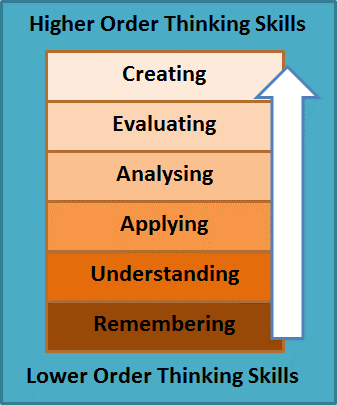 Why reading? It’s a skill that everybody should excel at. We need to read to interact, to agree, to disagree, to make decisions, to comprehend, to understand. All in all, it is an invitation to savour life.
Why reading? It’s a skill that everybody should excel at. We need to read to interact, to agree, to disagree, to make decisions, to comprehend, to understand. All in all, it is an invitation to savour life.
Reading sometimes goes unnoticed, because we are focused on doing something else. Have a look at the picture on the right. What five words from the word cloud resonate with you and your relationship with reading?
Have you just realised that in order to select such words, you had to read? Basically, this is not a reading activity, but you needed to read to accomplish the task. This is what I meant before when I said that it sometimes goes unnoticed.
Reading is everywhere!
Reading is such an essential part of learning, such an essential part of life! And students need to effectively develop this skill in order to interact with life itself.
Do you have your heart set on it? What about your students? I like to believe that when you put your heart to something, you are likely to succeed in doing it! How effective and successful are our students today when it comes to this skill? These are some questions that, in my opinion, need some further consideration.
Many are the times in which they are faced with reading activities that only cater for knowledge of syntax or how the language works, with questions that push them to “copy/paste” the answer and they feel they have comprehended the text. And when you ask them to infer meaning, they just blurt out “The answer is not in the text, teacher!” They are not used to reading critically, to analysing, evaluating, to creating something new out of a given text. As you can clearly see, I am resorting to Benjamin Bloom’s taxonomy of learning outcomes and objectives when I say this. We cannot talk about Reading without referring to Bloom’s taxonomy (see picture below). I am taking this framework only as a springboard for the so many activities we can design when it comes to this skill.
Bloom concluded that 95% of test questions focus on the lowest level of his taxonomy, the recall of information. Many reading comprehension tasks consist of questions that focus only on the sheer recall of facts presented in a text. Students do not find any appeal in doing this, they get bored, they do not find meaning in the activity and they give up. Something must be done.
Bloom’s Taxonomy of Learning Outcomes and Objectives (1956)

So I guess it’s high time we started reconsidering whether students’ dislike of reading is because of the tasks that many teachers provide them with.
Not only should we focus on our students decoding, that is, the ability to understand letter-sound relationships, such as knowledge of letter patterns in order to pronounce written words correctly (which children grasp in their first years of schooling), but on the students’ knowledge and vocabulary that will enable them to understand a given text. Decoding in itself is not reading. Decoding is essential for reading. But we can only talk about reading if Comprehension is involved.
To what extent do students enjoy reading?
I believe that this skill is the one students like the least. They usually associate it with exercises that require them to recognise this or that, to what “it” refers to in line X, to look for the author’s intention, to find the main idea and the details that support it, to put events in order, to compare and contrast, to re-insert a line into a given paragraph, to identify words, to find cause and effect relationships, and so on and so forth. Mastering these skills makes them think they have a good comprehension of the text. But do they? Don’t get me wrong, please, I am not saying that these tasks are not necessary, but I think there are many more ideas that can be implemented to get students to find meaning in what they do when reading.
Isn’t it time we made them realise how much more they can get out of this and how much they can enjoy the activity itself when activities are meaningful, relevant, fun and they meet their interests?
The typical three stages of reading tasks
You know how important the three stages of a reading task are, namely pre-reading, while-reading (or through-reading) and post-reading activities. Yet, many times we spend precious time on grammar or vocabulary tasks, which aren’t true comprehension activities. Students are presented with meaningless activities that should be engaging and go beyond some of the conventional tasks mentioned some paragraphs above.
Well-thought-of and carefully-planned activities that are engaging and meaningful can make all the difference when it comes to making this a skill that students will crave for.
The Art of Constructing, Deconstructing and Reconstructing Meaning
I like to think of reading as a complex and active process of constructing and even deconstructing and reconstructing meaning. That meaning will be constructed, deconstructed and reconstructed in three possible ways:
- In an interactive way — involving the reader as well as the text and the context in which reading takes place.
- In a strategic way — readers have purposes for their reading and use a variety of strategies and skills as they construct meaning.
- In an adaptable way — readers change the strategies they use as they read different kinds of text or as they read for different purposes.
Should you be interested in learning more about what Cognitive Science Research tells us about Reading Comprehension and Reading Instruction, you will find a very comprehensive article you may find interesting at www.readingrockets.org (see full link to the article at the end of this article).
What I care most is that during that meaning-construction/deconstruction/reconstruction phase, students are able to find joy in what they are doing and they have fun at the same time.
Reading for Life
Reading is a skill that will stay forever with us. We should instil the love of reading in our students. They need to stop seeing it as a boring task only to do exercises or to pass tests, but as a skill that will accompany them and will make them informed and assertive human beings for life.
Watch the webinar!
In my webinar I’ll explore these themes further, and will share some real-world activities that I use with my students.
Gustavo González is an English teacher from Argentina, he’s been in the ELT field since 1993, working as a teacher, school coordinator, teacher trainer and presenter. He has been delivering seminars and workshops all over Argentina, South, Central and North America, China, Singapore and Spain. He is one of the contributors to the book “Imagination, Cognition & Language Acquisition: A Unified Approach to Theory and Practice”, published by the New Jersey City University and has also written some articles for OUP (Oxford University Press), IATEFL (International Association of Teachers of English as a Foreign Language) and other institutions. He is a teacher trainer for the Oxford Teachers’ Academy (OTA), freelance PD trainer for Oxford University Press, Trinity College London and Buenos Aires Players, an educational theatre company. He is a former vice president of APIBA, the Buenos Aires English Teachers’ Association and former vice president of FAAPI, the Argentine Federation of English Teachers’ Associations.
References
- https://teachingenglishwithoxford.oup.com2013/01/31/reading-for-pleasure-appealing-to-learners-not-readers/
- https://teachingenglishwithoxford.oup.com2014/03/03/creativity-in-the-young-learner-classroom/blooms-revised-taxonomy/
- https://teachingenglishwithoxford.oup.com2019/09/03/4-creative-ways-share-enjoyment-literature/
- https://www.readingrockets.org/article/what-research-tells-us-about-reading-comprehension-and-comprehension-instruction
- https://www.teachthought.com/literacy/why-students-hate-reading/
Bibliography
- Geva, E. and Ramirez, G. (2015) Focus On Reading. Oxford University Press.
- Hadfield, J. and Hadfield, Ch. (2013) Kindle Edition. Simple Reading Activities – Oxford Basics. Oxford University Press.
- Hudson, T. (2007). Teaching Second Language Reading – Oxford Handbooks for Language Teachers. Oxford University Press.


What a brilliant article. I love reading myself. It is a pity that this stupid education system is so pathetic in all countries in the world. Everywhere we can see the same pattern spread globally.
People don’t read or learn for the pleasure of doing these things, for their real benefits but for grades, passing stupid exams. I think that rulers of this world don’t need wise and well educated people but stupid people who will do some menial jobs for minimum wages and that’s what they need.
I loved this article so much. It’s encouraging and well written indeed! Many thanks!
Yeah, you are absolutely right about this
I AGrEeD To U
Is there a recording of the webinar?
Hi Andy, we add all of our webinars to our webinar library once they are available -> https://oxelt.gl/2Unygug April’s webinars aren’t available yet, but we’ll be adding them in the near future 🙂 ^Chesca
Great ideas and article. Thanks a lot for sharing